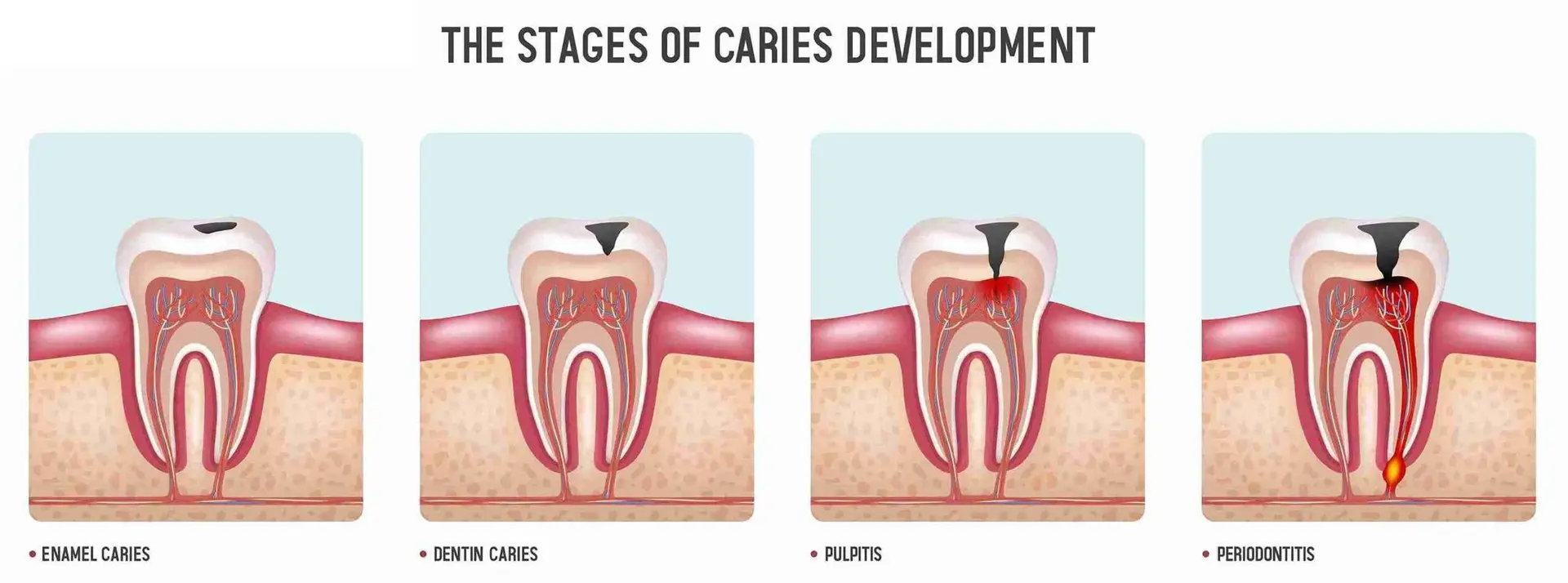
Root canal treatment, also known as endodontic therapy, is a dental procedure aimed at treating infection within the root canal of a tooth. It is often the last resort to save a tooth that would otherwise need to be extracted. This procedure has evolved significantly over the years, allowing for greater comfort, higher success rates, and preservation of natural teeth. In this article, we will explore what root canal treatment is, why it is necessary, the types of root canal treatments available, and the steps involved in the procedure. Meet with Best Root Canal Dentist In Gwalior
What is Root Canal Treatment?
Root canal treatment is a dental procedure that involves the removal of infected or damaged pulp from within the tooth’s root canal system. The pulp is a soft tissue containing nerves, blood vessels, and connective tissue, essential during a tooth’s development. However, once a tooth is fully developed, it can function without the pulp, as it continues to be nourished by the surrounding tissues.
When the pulp becomes infected or inflamed due to deep decay, repeated dental procedures, faulty crowns, or trauma to the tooth, it can lead to severe pain or an abscess if left untreated. The root canal procedure is designed to clean out the infected pulp, disinfect the canal, and fill and seal the space to prevent future infection.

The Need for Root Canal Treatment
Root canal treatment becomes necessary when the pulp, the innermost part of the tooth, becomes infected or inflamed. Several factors can lead to pulp infection, including:
- Deep Decay: When cavities penetrate deep into the tooth, they can reach the pulp, causing infection.
- Repeated Dental Procedures: Multiple dental treatments on the same tooth can irritate the pulp, leading to inflammation or infection.
- Cracks or Chips: Cracks in the tooth, even those that do not extend to the pulp, can allow bacteria to enter, causing infection.
- Trauma to the Tooth: A blow to the tooth can damage the pulp, even if there is no visible crack or chip.
If the infection in the pulp is not treated promptly, it can spread, leading to severe pain, abscess formation, and the eventual loss of the tooth. Root canal treatment is the best way to save the natural tooth and maintain dental health.
Types of Root Canal Treatment
There are several types of root canal treatments available, depending on the condition of the tooth and the extent of the infection. Understanding these types can help patients make informed decisions about their dental care.
- Conventional Root Canal Treatment: This is the standard procedure where the dentist removes the infected pulp, cleans the root canals, and seals them with a filling material. This treatment is usually performed over one or two visits to the dentist.
- Single Visit Root Canal Treatment: In some cases, the entire procedure can be completed in a single visit. This is often possible when the infection is not too severe, and the dentist can efficiently clean and seal the root canals in one session.
- Apicoectomy (Surgical Root Canal Treatment): In cases where a conventional root canal fails, an apicoectomy may be required. This surgical procedure involves removing the tip of the root (the apex) and sealing the canal from the root end to prevent further infection.
- Pulpotomy: This is a partial root canal treatment usually performed on children with primary teeth. The infected pulp is removed from the crown of the tooth, but the root canal remains intact. A medicated dressing is placed in the tooth to keep the remaining pulp healthy.
- Retreatment: If a tooth that has undergone root canal treatment develops new symptoms, a retreatment may be necessary. The dentist will reopen the tooth, clean out the root canals, and reseal them to address the new infection.
The Root Canal Treatment Procedure
The root canal treatment procedure is usually performed under local anesthesia to ensure the patient’s comfort. Here’s a step-by-step overview of what to expect during a root canal:
- Diagnosis and Preparation: The dentist will begin by taking X-rays to assess the extent of the infection and determine the shape and number of root canals. The area around the tooth will be numbed with local anesthesia, and a rubber dam will be placed around the tooth to keep it dry and free from saliva.
- Accessing the Pulp Chamber: The dentist will drill an access hole in the crown of the tooth to reach the pulp chamber. The infected or inflamed pulp is then removed using special instruments.
- Cleaning and Shaping the Canals: Once the pulp is removed, the dentist will clean and shape the root canals to prepare them for filling. This involves removing any remaining debris, bacteria, and tissue to ensure the canals are thoroughly disinfected.
- Filling the Canals: After the canals are cleaned, they are filled with a biocompatible material, usually gutta-percha, which is a rubber-like substance. The canals are then sealed with an adhesive cement to prevent future infection.
- Restoring the Tooth: In many cases, a tooth that has undergone root canal treatment will require a crown to restore its strength and function. The dentist may place a temporary filling until the permanent crown is ready. Once the crown is placed, the tooth is fully restored and can function like any other tooth.
- Follow-Up Care: After the procedure, patients may experience some sensitivity or discomfort, which can be managed with over-the-counter pain relievers. It’s essential to follow the dentist’s instructions for care and attend any follow-up appointments to ensure the tooth heals properly.

Benefits of Root Canal Treatment
Root canal treatment offers several significant benefits, including:
- Pain Relief: The primary benefit of root canal treatment is relief from the severe pain caused by an infected or inflamed pulp.
- Preservation of the Natural Tooth: Root canal treatment saves the natural tooth, which is always preferable to extraction. Maintaining your natural teeth helps preserve the structure of your jaw and ensures proper chewing and biting functions.
- Prevention of Spread of Infection: By removing the infected pulp and sealing the root canals, root canal treatment prevents the infection from spreading to other parts of the mouth or body.
Mentioning Dr. Sudhanshu Kushwah
For those in Gwalior seeking expert care in root canal treatment, Dr. Sudhanshu Kushwah at The Dental Square Clinic is a highly recommended specialist. With extensive experience in endodontic therapy, Dr. Kushwah ensures that each patient receives personalized and effective treatment. His clinic is equipped with state-of-the-art technology, providing a comfortable and efficient environment for all dental procedures, including root canal treatment. To learn more or book an appointment, visit The Dental Square Clinic.
Root canal treatment is a critical procedure for preserving dental health and maintaining the integrity of your natural teeth. With the right care and a skilled professional like Dr. Kushwah, you can ensure the best outcomes for your dental needs.




